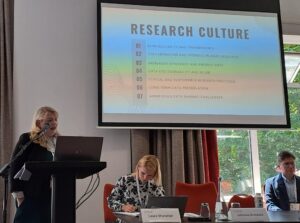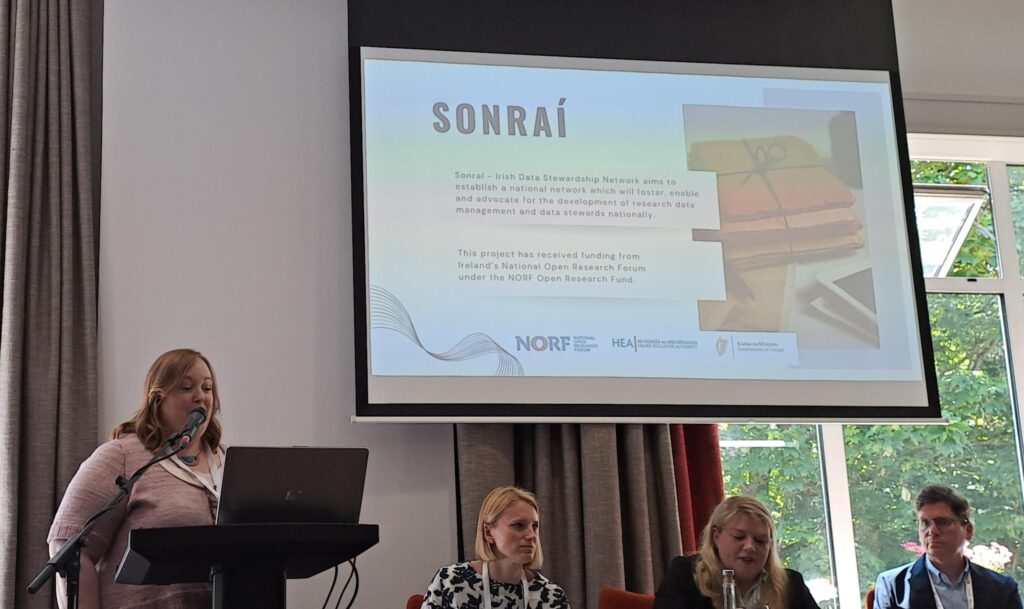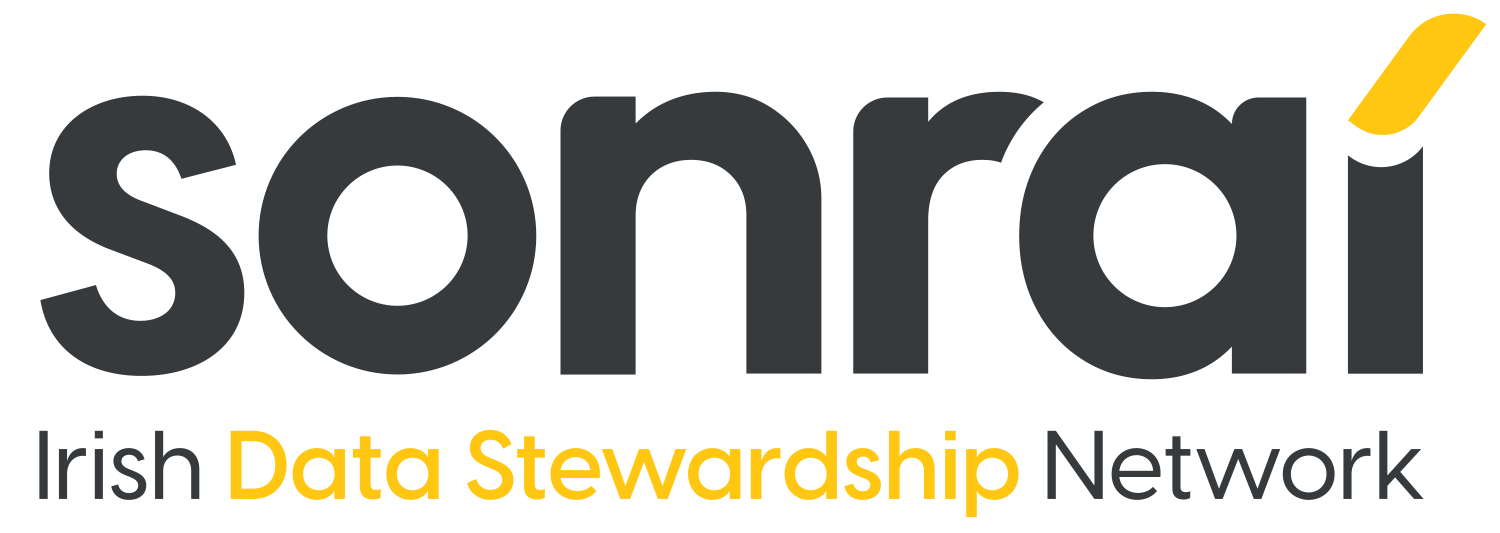CONUL established in 1971 is the Consortium of National and University Libraries and is the representative body of research libraries in Ireland and Northern Ireland. The CONUL Conference is an annual event which this year focused on the theme of sustainability in libraries and included talks posters and workshops aimed at exploring future trends in library design, services, collections, teaching and research. Sustainability in libraries is being addressed in numerous ways from reduction in the carbon footprint of the buildings to training and other initiatives to support the sustainable development goals within institutions.
Keynotes and Sonraí Presentation
Kicking off proceedings with an appropriately titled keynote ‘Our Grandest Challenge’, Rebekkah Smith Aldrich, Executive Director, Mid-Hudson Library System, rightly called climate change ‘our generations grandest challenge’. As president of the Sustainable Libraries Initiative in the US, Rebekkah is working to understand how libraries can aid communities as they are confronted by environmental social and economic upheaval caused by climate change. She calls for libraries to be imaginative and to try new things and new ways of thinking but also to reflect and critically review our initiatives and policies to ensure we are delivering on commitments made to sustainability. Which raises a question for Sonraí ‘do data stewards have a role in sustainability? ‘As a fledgling network and a new role in the national landscape what can data stewardship and Sonraí do?
If the keynote on day 1 connected to data in our everyday lives, the second keynote from MIT PhD candidate Steven Gonzalez Monserrate, brought us into the often-invisible data world of ‘the cloud’ with his talk ‘Thirsty Servers, Carbonivorous Computers: An Ethnographic Survey of the Cloud’s “Metabolic Rift”’. He asked us to consider the ‘metabolic rift’ that computation, and ‘the Cloud’ has created globally. He gave examples of the impact data centres have on the communities and landscapes in which they are placed, environmental, social and economic. Again, this prompts us to reflect on our work as data stewards; while research data is a small percentage of global cloud storage our role as data stewards is to increase this holding, to encourage more long-term preservation of research outputs and data. How do we ensure there is balance between the social, environmental and economic cost of preservation and the need to ensure research outputs are transparent accountable and available for reuse?

For our part as data stewards and members of Sonraí Irish Data Stewardship Network we presented on how a data stewardship approach could have a positive impact on research and research culture. Our network aims to establish a national network which will foster, enable and advocate for the development of research data management and data stewards nationally. During the talk project partners Johanna Archbold and Jenny O’Neill outlined a vision for the emerging network and our plans to enable that vision. They highlighted the key role data stewards play in ensuring research data is high quality, reproducible, improving research outcomes and facilitating transformative initiatives which will address our greatest challenges. The take-home message being engagement and support for data management, curation and FAIR data sharing are critical for Irish research and the transition to an Open sustainable and transparent research landscape with the availability of data stewardship skills and expertise in the research ecosystem as core enablers.
If keeping it all is unsustainable, how do we decide what can be deleted?

Something that is often asked of data stewards is ‘what data do I preserve? Or what data do I make FAIR?’. The easy answer here is to say preserve it all. But considering the ‘metabolic rift’ our data centres are creating, is that the best advice? If keeping it all is unsustainable, how do we decide what can be deleted? Or how to ensure the data we do keep is reusable and has future potential? Not only can data stewards help researchers, institutions and infrastructure providers decide what to keep, they can make sure what is kept and preserved is high quality. Data stewards are active across the research lifecycle, including helping researchers formalise data management processes in a data management plans (DMP), ensuring data quality control measures are in place from the outset, recommending secure storage and backup, helping with documentation and organisation, and encouraging the use of structured metadata. Embedding the FAIR principles in research is still relatively new, but with the help of a data steward and a DMP researchers can engage early, plan for data sharing and ensure their data has a life beyond their project through use of repositories, open licensing and high-quality data and metadata. Data stewards and researchers working together on DMPs, and the FAIR Principles means less research waste, growing availably and accessibility of high-quality research data, better value for public money spent on research, sharing of null findings and overall, a more transparent and sustainable research ecosystem with reproducible and reusable data outputs.

However......
However currently there are very few formal data stewards in the national research landscape, researchers are often unsupported in making key decisions about the treatment of their data. The scarcity of data stewardships skills among researchers also means that the optimum outcome for research data is rarely achieved. For those data stewards who are in place their role is often not recognized or they are the only one within their organization and defining a career pathway, training and progression can be difficult.
The National Action Plan for Open Research aims that by 2030 we will have an open research landscape with the FAIR principles embedded in our research practice, but this will only ever be a vision if data stewards and data stewardship is not systematically supported at all levels. Sonraí is one of the first steps in that support system and aims to establish a national data stewardship network across research performing organisations, funders, and related research support services and infrastructures to build national capacity, develop a collective voice and as outlined above play a key role in the future sustainability of our research landscape.

